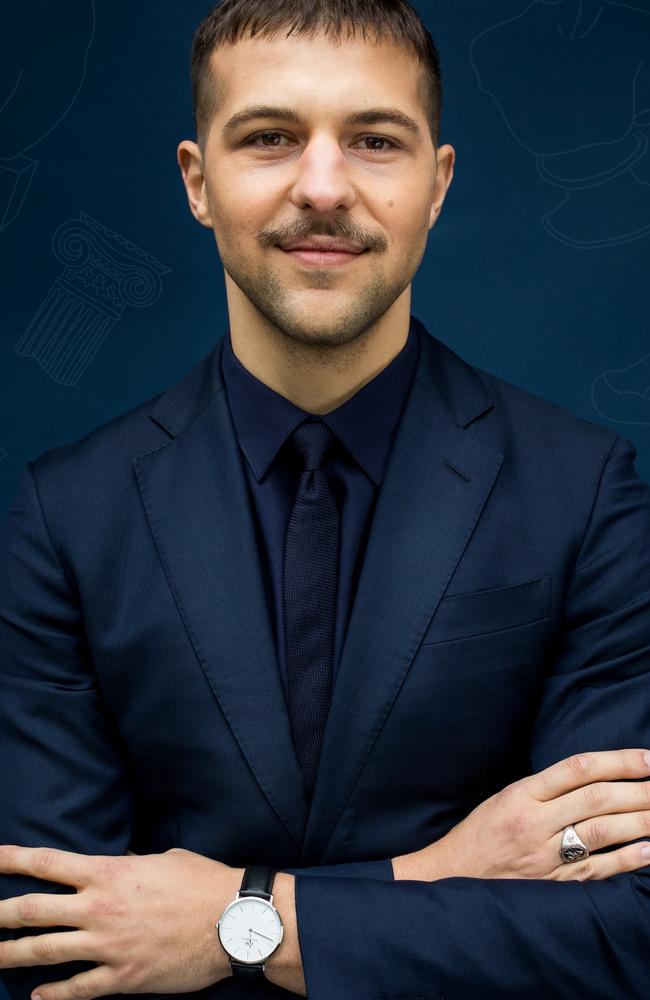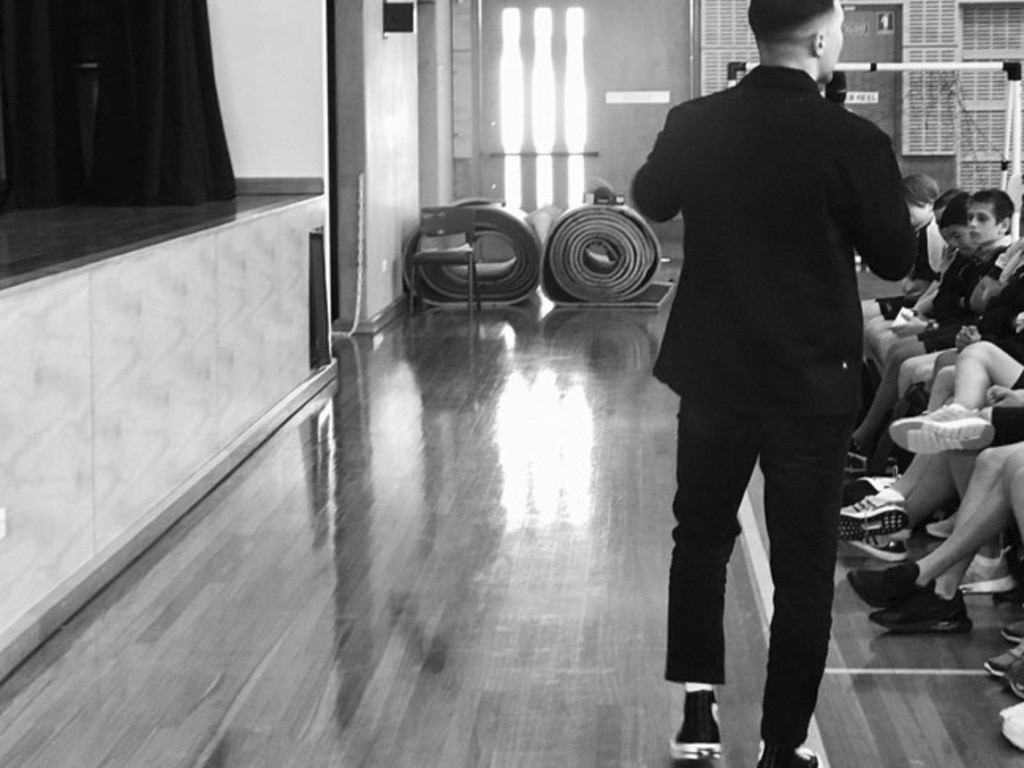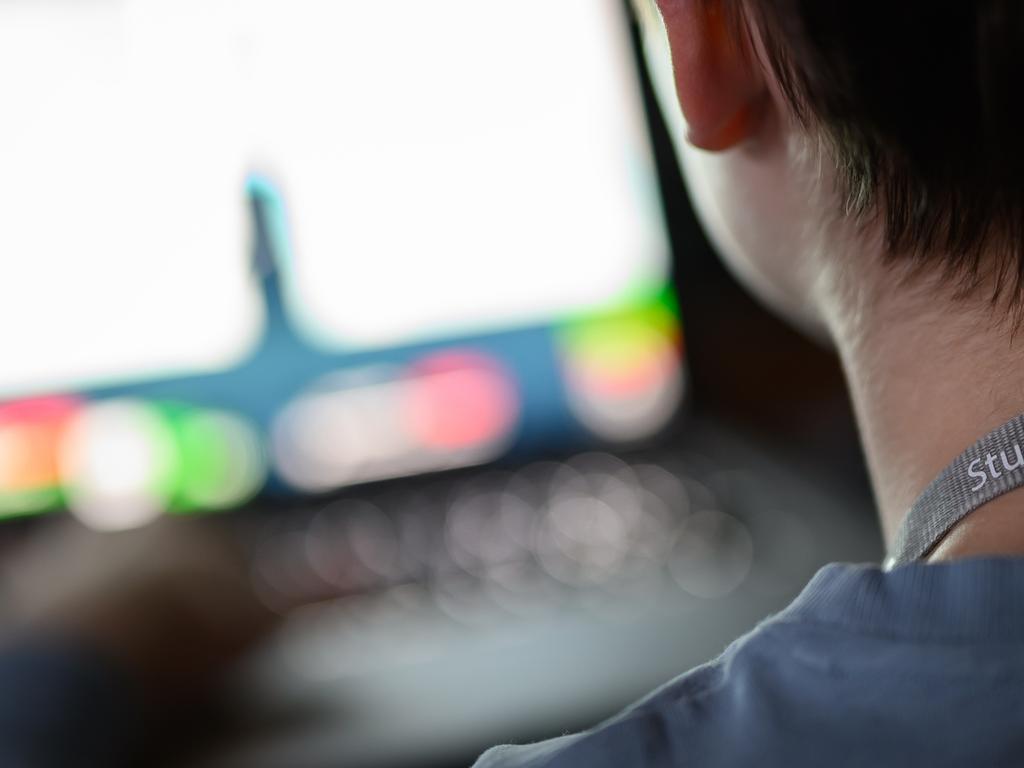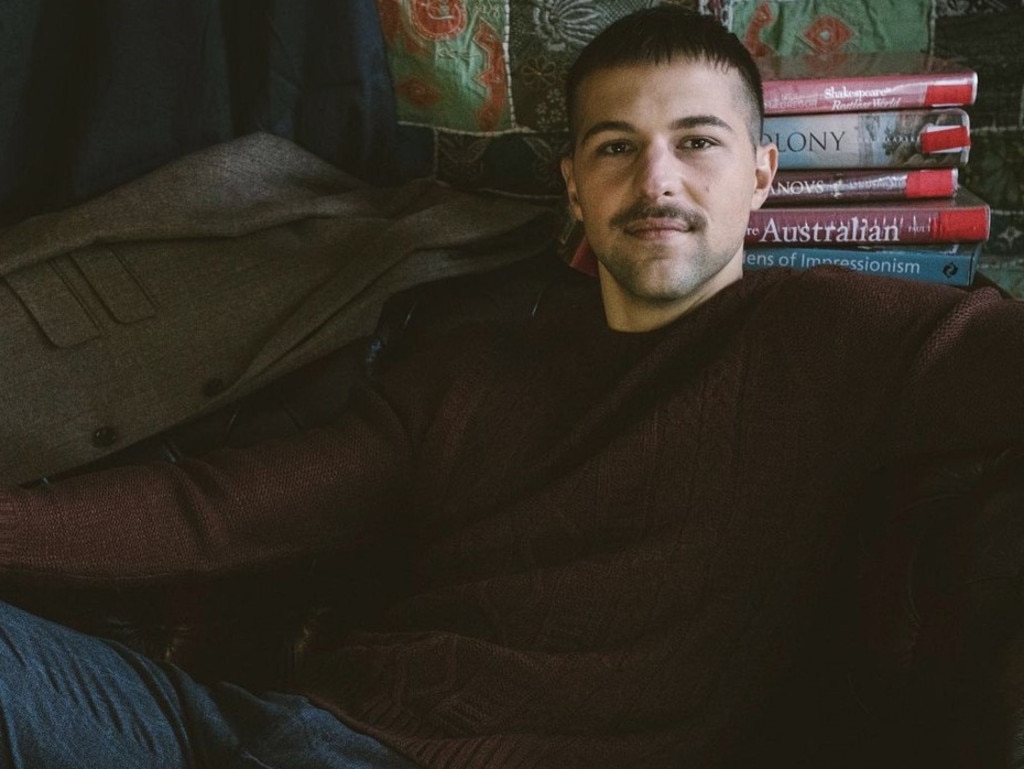Daniel Principe is waging a war against online pornography – and the reasons why will haunt you
These are the videos Australian children are being confronted with as young as 11. And it is warping their minds.

Daniel Principe is waging a war against online pornography, which he says has warped the minds of young boys and made sexual violence seem normal and healthy.
The celebrated youth educator and advocate works in schools across Australia trying to hold back the tide against a $150 billion global pornography machine, which fights against reform and regulation to ensure its survival.
Mr Principe said many of the young boys he meets view alarming acts like strangulation, spitting and hitting during sex as normal.
After all, that’s the kind of content they see online.
“Pornography has become the default source of sex education for young people in this country,” Mr Principe said.

In real life, the consequences of exposure to unsafe and unhealthy material can be devastating.
“There are huge harms associated with pornography. The research suggests that boys who consume a lot of pornography are more likely to be sexually violent, so there are broad ramifications for the entire community.”
Graphic content isn’t confined to adult websites but has flooded spaces where many adults might assume kids are relatively safe.
“I’m in Broome right now and 80 per cent of the Year 7 boys I just spoke to have had sexual content drop into their Snapchat, TikTok, Instagram and Discord feeds,” Mr Principe said.
“In a session I did this morning with Year 5 and 6 boys, 50 to 60 per cent said they are encountering pornography online.”
Most will come across pornography by accident rather than seeking it out, with the majority finding it for the first time when they’re just 11.

Educators like Mr Principe, as well as schools, parents and community groups have been largely abandoned by governments, left to go it alone in “an unfair fight”.
“The best sex and respectful relationship and consent education programs can’t compete,” he said. “Trying to undo the damaging indoctrination of pornography is very challenging.”
Solid plan sunk by the government
Australia’s eSafety Commission was tasked by the last government with devising a strategy for the rollout of age verification for explicit online content and began a two-year consultation period.
But this year, when presented with the final report and recommendation, the Albanese Government rejected a push for a full-scale rollout and opted to let the pornography sector police itself.
“If child wellbeing was a national priority, we would act on eSafety’s plan to trial ways to protect young kids from online porn,” National Children’s Commissioner Anne Hollonds said in September.
“This would help to reduce child sex abuse, youth crime, domestic and family violence. We seem to rely on kids getting education at school or having parents able to protect them.”
Mr Principe said the technology exists to allow adults to anonymously access pornography while ensuring young people can’t see it.
“The government’s decision was so disappointing,” he said.
“Every single day I’m hearing stories from young people themselves about the kind of shocking content they’re being exposed to.
“It’s a modest ask to at least trial an age verification system pilot that can be taken on an iterative process to keep children safe.”
Huge potential harms
Research by the child abuse not-for-profit Bravehearts found the frequent viewing of pornography by young people can “foster unhealthy sexual attitudes while also impacting their propensity towards sexual violence”.
“In addition to this, a high rate of exposure to pornography can limit how young people view members of the opposite sex and impact positive perceptions,” the research concluded.

The Australian Institute of Health and Welfare (AIHW) revealed in 2020 that adolescent boys aged 15 to 19 now make up the largest cohort of sexual offenders.
Its data showed that age group had a higher offender rate of 102.9 offenses per 100,000 people of any other age demographic.
“Knowledge and attitudes about sexual violence can also be shaped by access to technology, such as smartphones, social media and other digital media,” the AIHW said in its research report.
“More Australians, particularly young people, use technologies to seek out relationships and information on sexuality and sexual identity.
“While these technologies can be used to share and document experiences of sexual harassment and violence, there are also concerns that they can have a negative impact on people’s attitudes and practices by portraying and normalising harmful sexual behaviours or stereotypes.”

Attitudes towards sex among boys are also dangerously skewed, the 2017 National Community Attitudes towards Violence against Women Survey (NCAS) found.
Two-in-five believe it’s common for sexual assault accusations to be used to “get back at men”, one-in-three see rape as the result of men “not being able to control their need for sex”, and 13 per cent said a man is justified in having non-consensual sex if a woman initiated it but changed her mind.
A startling report by Britain’s Children’s Commissioner Dame Rachel de Souza reveals sexual violence has been normalised in online pornography and is playing a role in shaping how young people view sex and relationships.
“Let me be absolutely clear – online pornography is not equivalent to a ‘top-shelf’ magazine,” Dame de Souza said.
“The adult content which parents may have accessed in their youth could be considered ‘quaint’ in comparison to today’s world of online pornography.
“Depictions of degradation, sexual coercion, aggression and exploitation are commonplace, and disproportionately targeted against teenage girls.”
Her research found one-fifth of male teens viewed pornography at least once a day.

Boys who first viewed pornography at the age of 11 or younger were “significantly” more likely to become frequent users.
Alarmingly, 36 per cent of young people had specifically sought out content involving an act of sexual violence, the research found.
“I truly believe that we will look back in 20 years and be shocked by the content to which children were exposed,” she said.
Porn is now inescapable
Major research by the Australian Communications and Media Authority in 2020 found almost half of children aged six to 13 have a mobile phone.
After playing games, the most common use for them is to take photos and videos.
The older a child is, the more likely they are to have a phone, with various surveys indicating between 70 and 80 per cent of teens aged 15 to 17 have one.
The average age a child gets their first phone sits at about 13.

The proliferation of technology and the overwhelming volume of pornographic content in virtually every corner of the internet make supervision challenging.
It’s not just on dedicated adult websites but also runs rampant through social networking sites and chat messaging systems.
The era of parents being able to successfully manage the content their children consume or are exposed to is over, experts believe.
Products exist to block access to certain websites, but it might give parents a false sense of security.
As Bravehearts pointed out, a tech-savvy child or teenage might be able to remove filters or blockers installed on computers and other devices by their parents.
The group supports the use of age verification technology being mandated by the government.
‘Porn profits before protection’
Child safety advocates slammed the government’s decision to ignore the eSafety Commissioner’s age verification plan.
The group Collective Shout said pornography profits had been prioritised over the protection of children.
“The government has caved to the vested interests of the porn industry,” Collective Shout director Melinda Tankard Reist said.
“Even while acknowledging porn as a driver of violence against women, as reflected in its National Plan to Address Violence Against Women and Children, the government has allowed itself to be swayed by industry resistance to an age-verification system.
“If France, Germany, UK, Louisiana and Utah can roll out age verification systems, why can’t we? Vested interests should not be put before the wellbeing of children.”


The Coalition also savaged the government’s stance, saying the pornography industry would celebrate its win.
Shadow Communications Minister David Coleman said age verification technology was crucial in protecting vulnerable young people.
“Child online safety is a defining issue of our time, and we must do everything we sensibly can to keep kids safe,” Mr Coleman said.
“It is impossible to understand why the government is refusing to act on this recommendation.”



